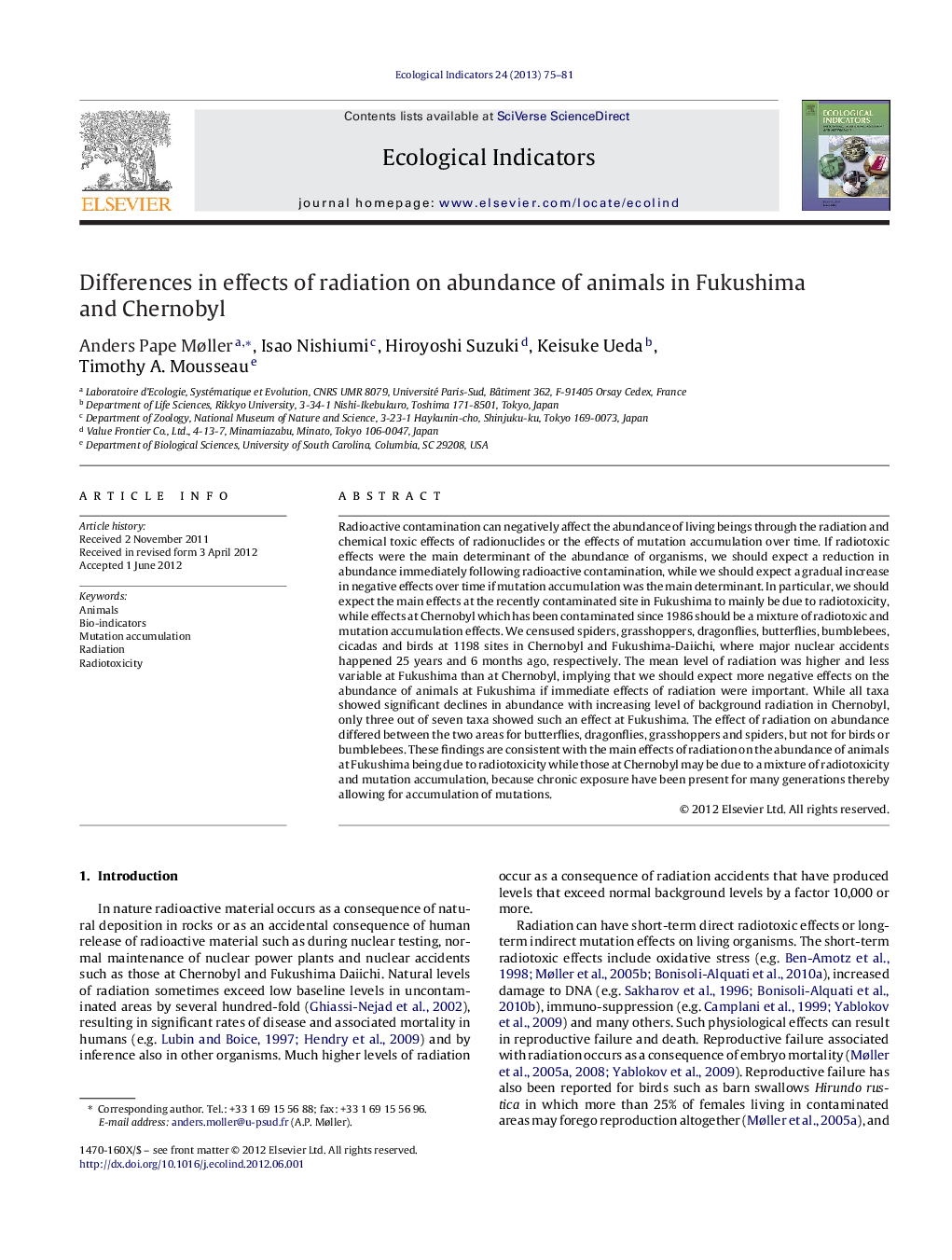| Article ID | Journal | Published Year | Pages | File Type |
|---|---|---|---|---|
| 4373622 | Ecological Indicators | 2013 | 7 Pages |
Radioactive contamination can negatively affect the abundance of living beings through the radiation and chemical toxic effects of radionuclides or the effects of mutation accumulation over time. If radiotoxic effects were the main determinant of the abundance of organisms, we should expect a reduction in abundance immediately following radioactive contamination, while we should expect a gradual increase in negative effects over time if mutation accumulation was the main determinant. In particular, we should expect the main effects at the recently contaminated site in Fukushima to mainly be due to radiotoxicity, while effects at Chernobyl which has been contaminated since 1986 should be a mixture of radiotoxic and mutation accumulation effects. We censused spiders, grasshoppers, dragonflies, butterflies, bumblebees, cicadas and birds at 1198 sites in Chernobyl and Fukushima-Daiichi, where major nuclear accidents happened 25 years and 6 months ago, respectively. The mean level of radiation was higher and less variable at Fukushima than at Chernobyl, implying that we should expect more negative effects on the abundance of animals at Fukushima if immediate effects of radiation were important. While all taxa showed significant declines in abundance with increasing level of background radiation in Chernobyl, only three out of seven taxa showed such an effect at Fukushima. The effect of radiation on abundance differed between the two areas for butterflies, dragonflies, grasshoppers and spiders, but not for birds or bumblebees. These findings are consistent with the main effects of radiation on the abundance of animals at Fukushima being due to radiotoxicity while those at Chernobyl may be due to a mixture of radiotoxicity and mutation accumulation, because chronic exposure have been present for many generations thereby allowing for accumulation of mutations.
► We censused animals at 1198 sites in Chernobyl and Fukushima varying in level of radiation. ► Abundance of more animals declined with radiation in Chernobyl than in Fukushima. ► The effect of radiation on abundance differed between Chernobyl and Fukushima. ► Effects of radiation on birds and bumblebees did not differ between areas.
